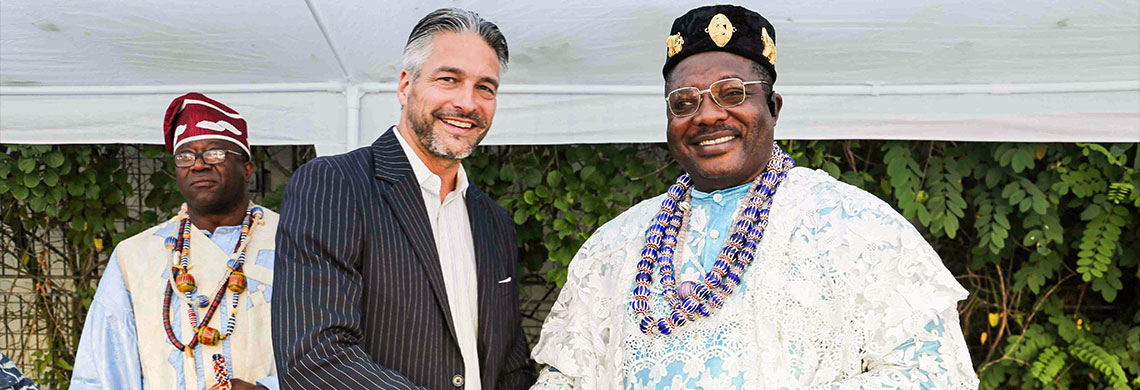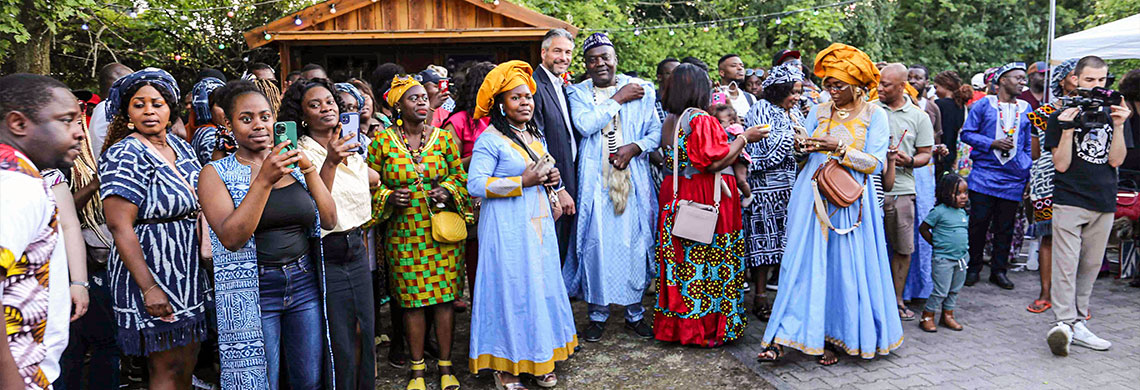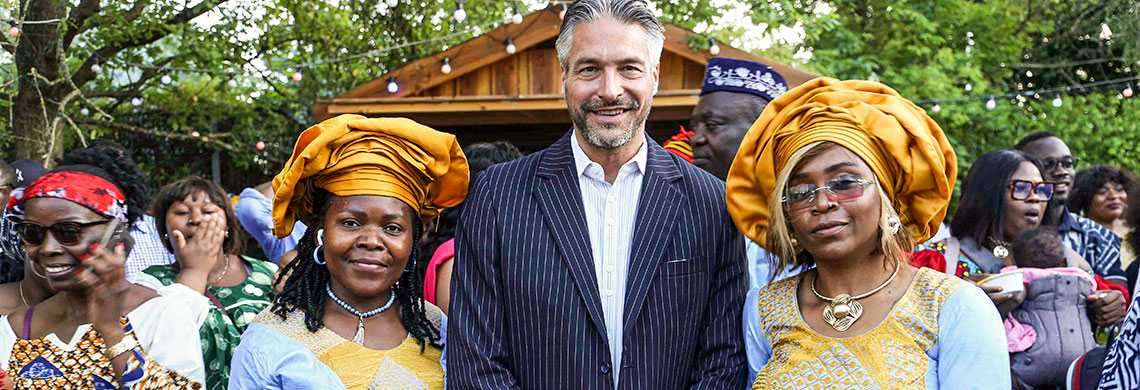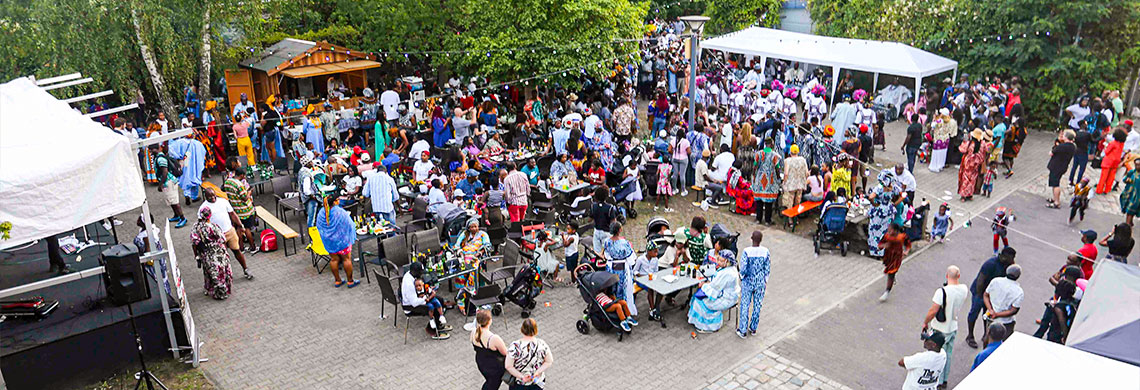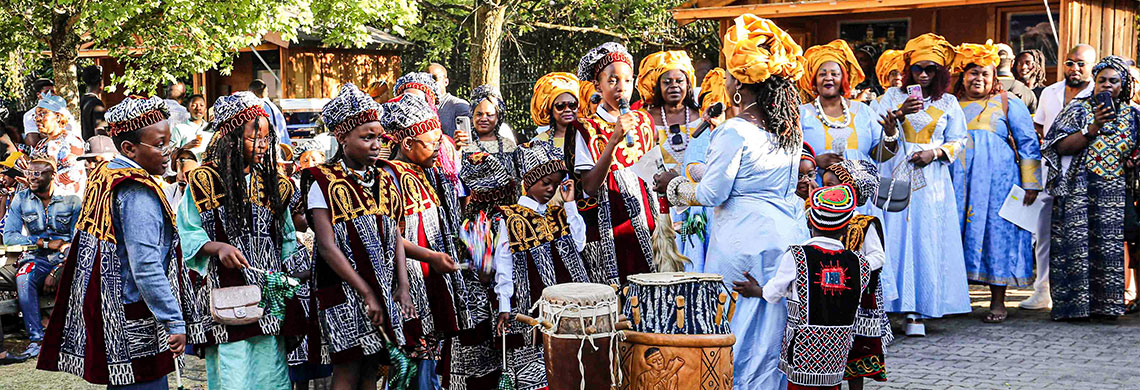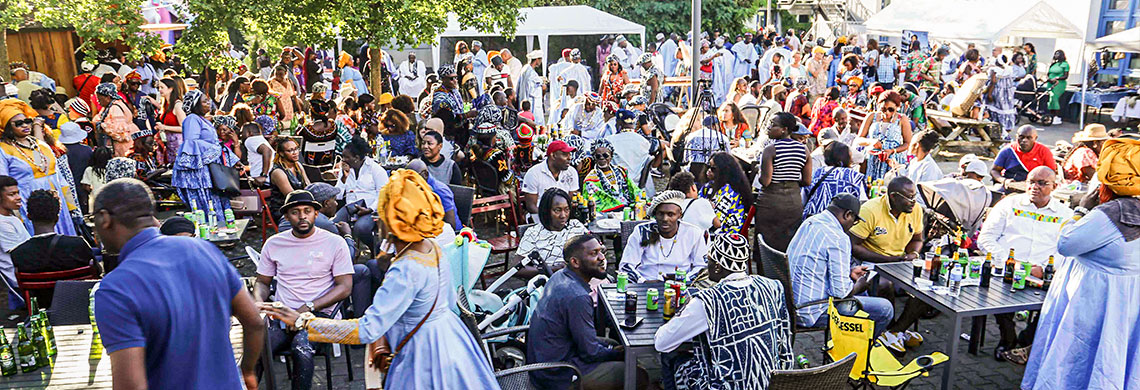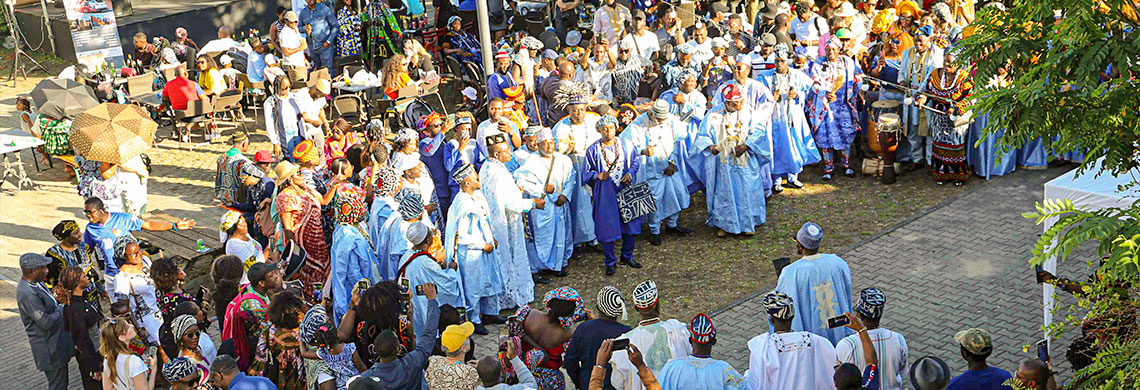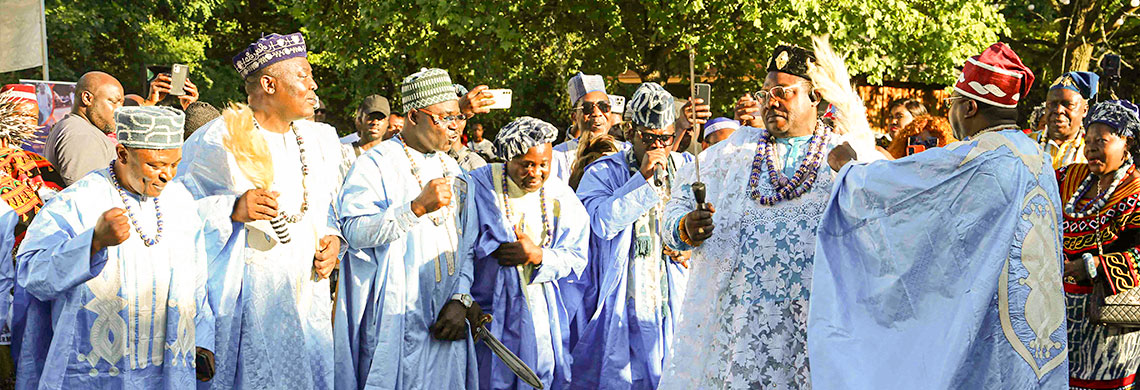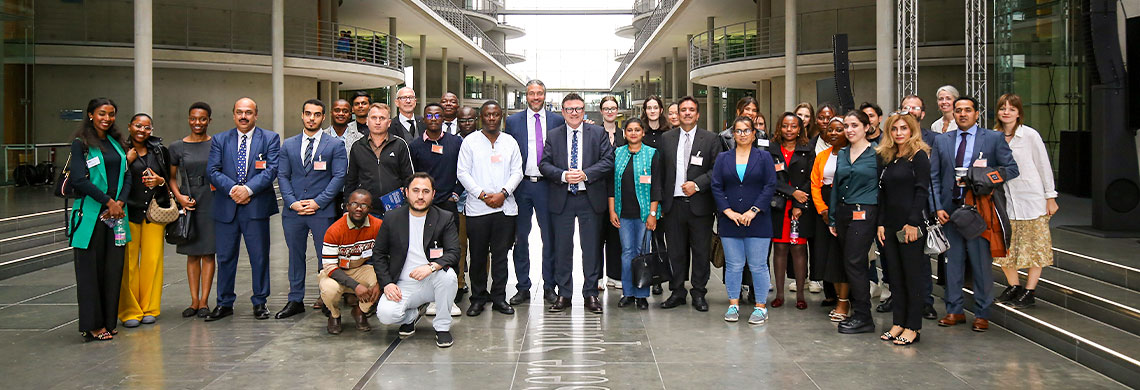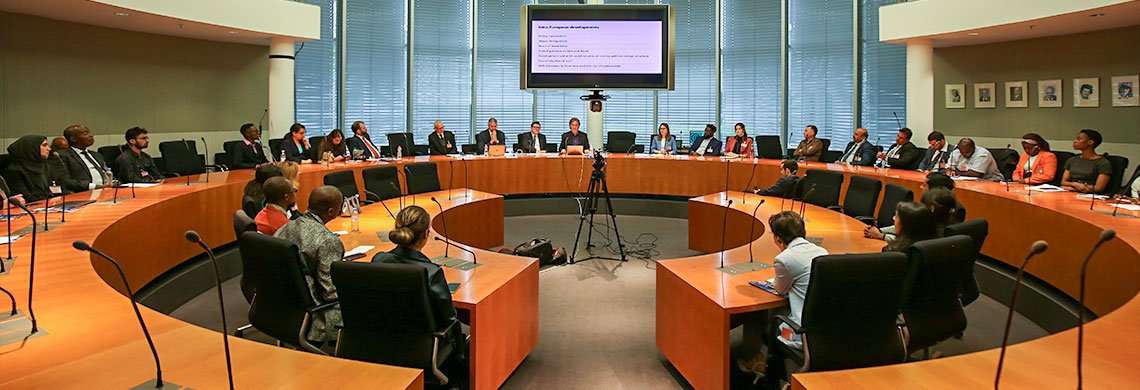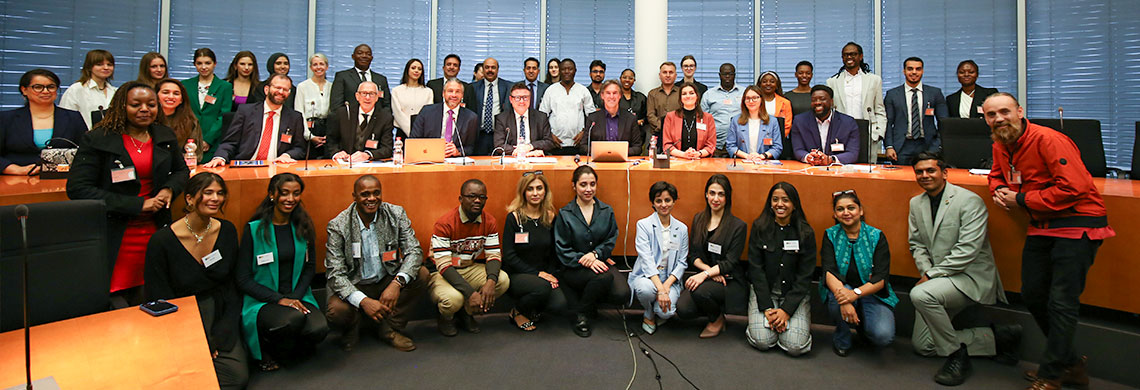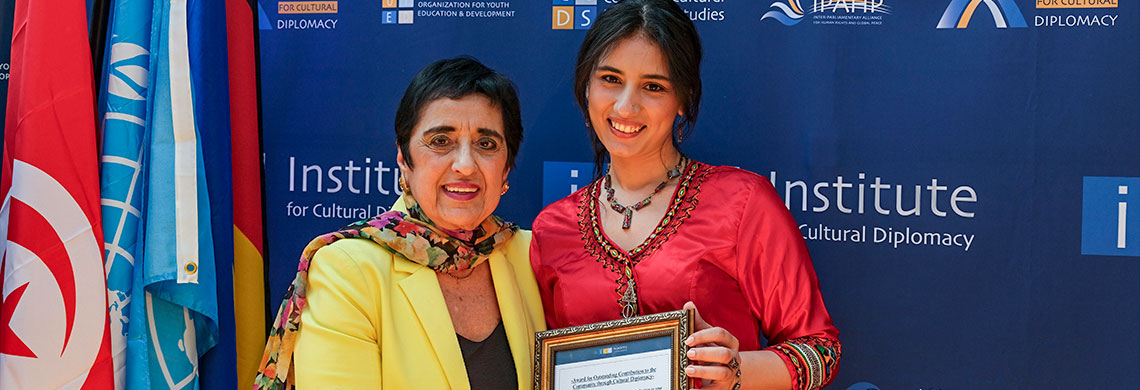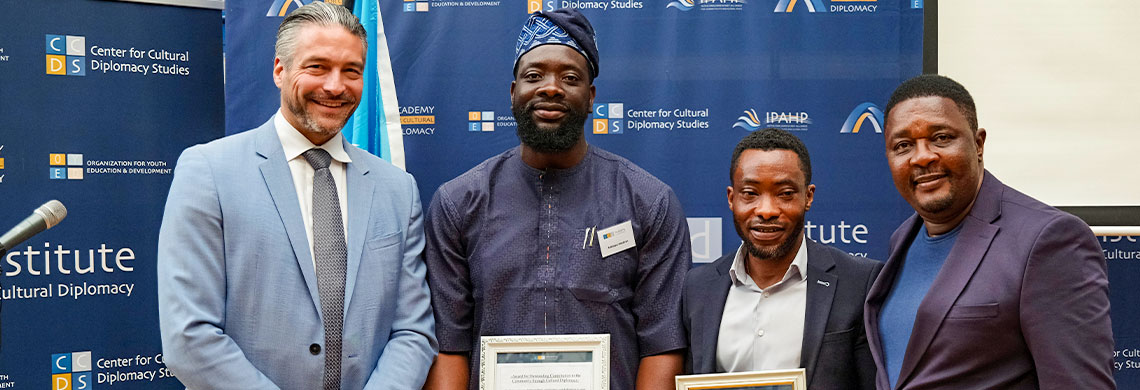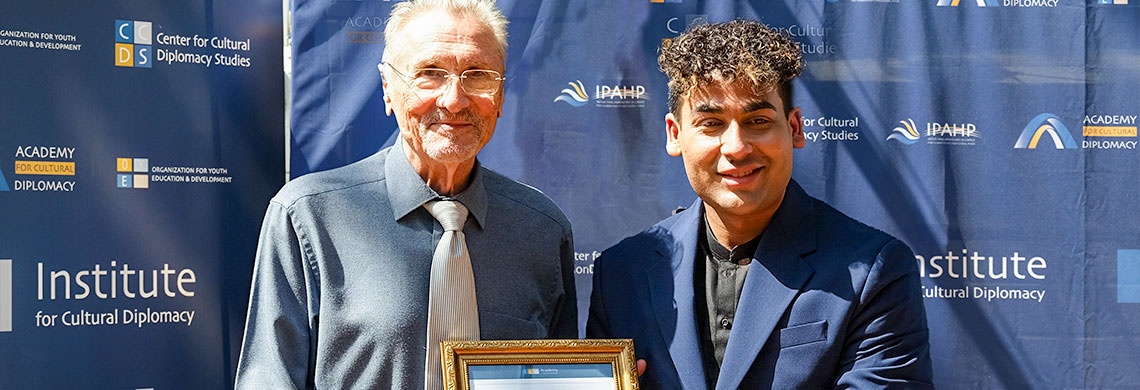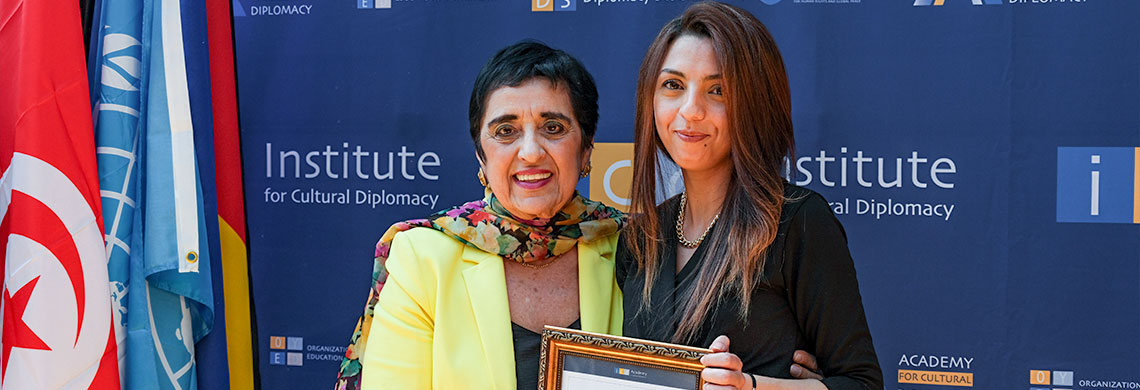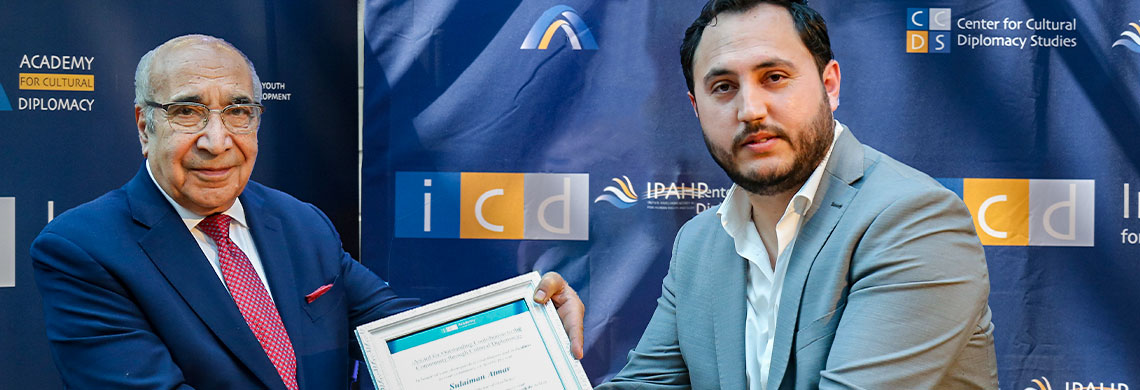Young Leaders´ Forums
Europe Meets Russia

Day 1: Tuesday, April 28th
Day 2: Wednesday, April 29th
Day 3: Thursday, April 30th
Day 4: Friday, May 1st
Day 5: Saturday, May 2nd
Day 1: The Russian Embassy in Berlin, Russian Haus, and the Chairman of the German-Russian Group of Politicians
Day one of the Weeklong Seminar for “Europe meets Russia: A Forum for Young Leaders” began in Berlin’s historic Amerika Haus, former location of the cultural department of the American Embassy in Berlin and hub of activity and cultural exchange during the Cold War. The day began with a brief introduction to the Seminar by the founder and director of the Institute for Cultural Diplomacy (ICD), Mark Donfried, who outlined the key goals for the week and stressed the importance of inter-cultural exchange.
The inaugural program speaker, Mr. Dmitri Molchanov, Third Secretary of the Russian Embassy in Berlin and a key figure in the Foreign Policy Department, then delivered a lecture on the Russian-European relationship from the standpoint of the Russian government. Mr. Molchanov began with a short introduction outlining the current domestic situation in Russia, before going on to tackle a broad range of issues including the efficiency of the current administration, relations with Europe and the United States, corruption, NATO, and Georgian aggression. Following Mr. Molchanov’s presentation there was a passionate discussion, and the resulting question and answer session that took place in the auditorium of the Amerika Haus provoked a diverse range of responses.
After a brief interlude for lunch at a nearby café, Amerika Haus then played host to the Vice-Director of the Russian Haus, Serghey Zhuravlev. Mr Zhuravlev opened with an overview of the Russian community in Berlin and throughout Germany, before offering a historical narrative of the Russian Haus, situated on Friedrichstrasse. He followed this with an in-depth historical overview of the Russian-European relationship, highlighting key successes and failures.
Professor Gert Weisskirchen, Spokesman for the SPD (Sozialdemokratische Partei Deutschlands) and Chairman of the German-Russian group of Parliamentarians, brought a lively first day to a close. After a brief, edifying introduction to Russian geopolitical problems, current affairs and the Russian future, there was a constructive debate between the participants moderated by Prof. Weisskirchen, which set the tone for the remainder of the week. The day ended with an enjoyable meal at the Tunisian restaurant ‘En Passant’, located in West Berlin’s fashionable Savignyplatz, which gladly hosted the group with pasta, couscous, and wine.
Day 2: Cultural Understanding, the European Commission, and the Foreign Office
Day two opened with an interactive workshop chaired by Dr. Ivanova, consultant and trainer for cross-cultural competence in Moscow. Dr. Ivanova delivered an insightful introductory address on the misunderstanding and understanding between cultures before opening the discussion up to the floor. This led to a heated debate between the participants in which varying opinions were expressed and fresh observations were made by several members of the group.
The participants then digested their lunch, and discussed the information they had received during the morning session, on the Ku’damm before reconvening for the afternoon program. Mark Donfried then delivered an introduction to cultural diplomacy and invited discussion on the meaning of the term. Mr. Donfried explained that the ICD’s goal was to reach and empower civil society through the Seminar’s participants, before outlining that the group had now joined a powerful network of civil society activists committed to improving European-Russian relations.
In the afternoon the participants visited the European House in Berlin, where they had the opportunity to speak with Dr. Marzenna Guz-Vetter. Dr. Guz-Vetter, a representative of the European Commission in Berlin, gave an impressive speech that set out by tackling the issues regarding the upcoming European Parliament elections, before discussing trade barriers between the EU and Russia and the possibility of a new trade agreement between the two regions. The speech also touched upon other key areas, including EU investment in Russia, and vice versa, and the EU reaction to the recent conflict between Russia and Georgia.
The Foreign Office on Werderscher Markt played host to the evening event, a panel discussion focussing on the importance of art as a cultural mediator. ‘Born in the USSR, Russian Art from Germany’ was fronted by Irina Slinchuk, Head of the International German-Russian club, Martin Hoffmann, member of the Petersburg Dialog, and Dr. Thomas Kunze of the Konrad Adenauer Foundation, who provided in-depth contextual analysis of artistic relations between Germany and Russia.
The participants were then able to recharge during excellent meal at the nearby Kaffee Burger, where conversation and the cordial atmosphere continued for several hours.
Day 3: EU Enlargement, the OECD, and Giulietto Chiesa
Thursday began with a lecture on ‘Geopolitical and Cultural Dimensions of EU Eastward Enlargement’ by the renowned Professor Ulrich Brückner, an expert in the field of European integration. Prof. Dr. Brückner discussed topics ranging from EU and Russian expansion, to the difficulties facing the EU and how he foresees Russia and the European Union cooperating with neighboring states in the future. This sparked a range of views from the participants, many of whom had differing perspectives on both European and Russian enlargement and the conflicting interests arising from this.
After lunch under the iconic German symbol of freedom, the Brandenburg Gate, the participants were then escorted to the Berlin Center for the Organization for Economic Cooperation and Development on Schumannstrasse. Heino von Meyer, the Director of the OECD Berlin Center, gave an assured address on the history of the OECD and its current role in developing the European-Russian relationship in an economic context. Mr. Von Meyer stressed the importance of independent reports on respective countries economic, environmental and scientific progress in order to encourage sustainable development for the future.
In the evening the ICD was honored to host the controversial Italian journalist and politician, Mr. Giulietto Chiesa, a man whose essays and recent film “Zero 9/11” have sparked polemic reactions internationally. Mr. Chiesa began by stating that “We know nothing” and went on to claim that the media was strongly controlled by a small group of private sector elites (the examples he gave were individuals in the pharmaceutical, automobile, and financial services industries), who determine what is reported and how, thereby exerting a dangerous influence on public opinion. The group was pleased to have access to a different perspective on international affairs and, though Mr. Chiesa split opinion, all of the participants left with much to think about.
The evening was rounded off with dinner and drinks in the lively and culturally diverse Oranienburger Strasse, where the group was able to unwind and discussion of the day’s events ran late into the evening.
Day 4: Soviet Ethnic Conflicts, Music and Art as Cultural Diplomacy
The penultimate day began once again at the Amerika haus, where Ms. Nina Kösling, a PhD student currently writing her Thesis on Soviet Ethnic conflicts, took to the podium. She introduced her subject to the group, before providing a rich narrative of Soviet history up to the present day, with specific focus on ethnic conflicts in the region. The main points that Ms. Kösling touched upon were the mass deportation of various ethnic groups from many Soviet states, territorial autonomy and the ethnic mixing within Russia, which resulted in a valuable and enriching discussion between the participants and for many shed new light on ethnic conflict within the Soviet sphere.
After lunch on Friedrichstrasse, the afternoon session was kicked off in spectacular fashion at Russia Haus, where the participants were treated to a Gala Concert from the Russian-Belorussian Symphony Orchestra, which only sought to highlight the importance of music in breaking down cultural barriers. The artistic theme continued into the evening with a trip to the East-side Gallery, which offers a unique collection of artwork, a stark reminder of the divisions of ‘Old Europe’ and the importance of dialogue and mutual understanding as we look to the future.
The evening was concluded at the YAAM beach in the trendy Friedrichshain district, where conversation centered on the incredible live performance by the Russian-Belorussian Symphony Orchestra earlier in the day.
Day 5: The Russian Chamber of Commerce in Germany, and the future
The final day of the EMR Weeklong Seminar saw the head of the Russian Chamber of Commerce and Industry in Germany, Mr. Nikitin, take to the lectern. Mr. Nikitin delivered a fascinating address, highlighting the importance of Russian business culture and describing his role within the Chamber of Commerce, which he explained was to help Russian businesses looking to work within Germany, as well as forming ties with German Businesses seeking to operate within Russia. Following Mr. Nikitin’s presentation, participants posed questions to the Director regarding trade and Russian investment in the European Union, and sought his opinion on the economic status and future of territories neighboring the two regions, which he was more than happy to share.
The group was then given the opportunity to present the cultural exchange initiatives they had been working on throughout the week to their fellow participants. During the presentations it was evident that the groups had thought in depth about how they could address the imbalance in cultural awareness between Europe and Russia, particularly amongst the younger generation. Their ideas combined a number of techniques designed to ensure their initiatives would be realistic, sustainable, and would help to elicit greater interest within each country for the other.
The presentations represented the culmination of the week and served as a challenge to the participants to develop their own initiatives in the future. Following the culmination of these presentations ICD Founder and Director Mark Donfried presented the participants with certificates and CDs containing important information about the week and the Forum as a whole.

